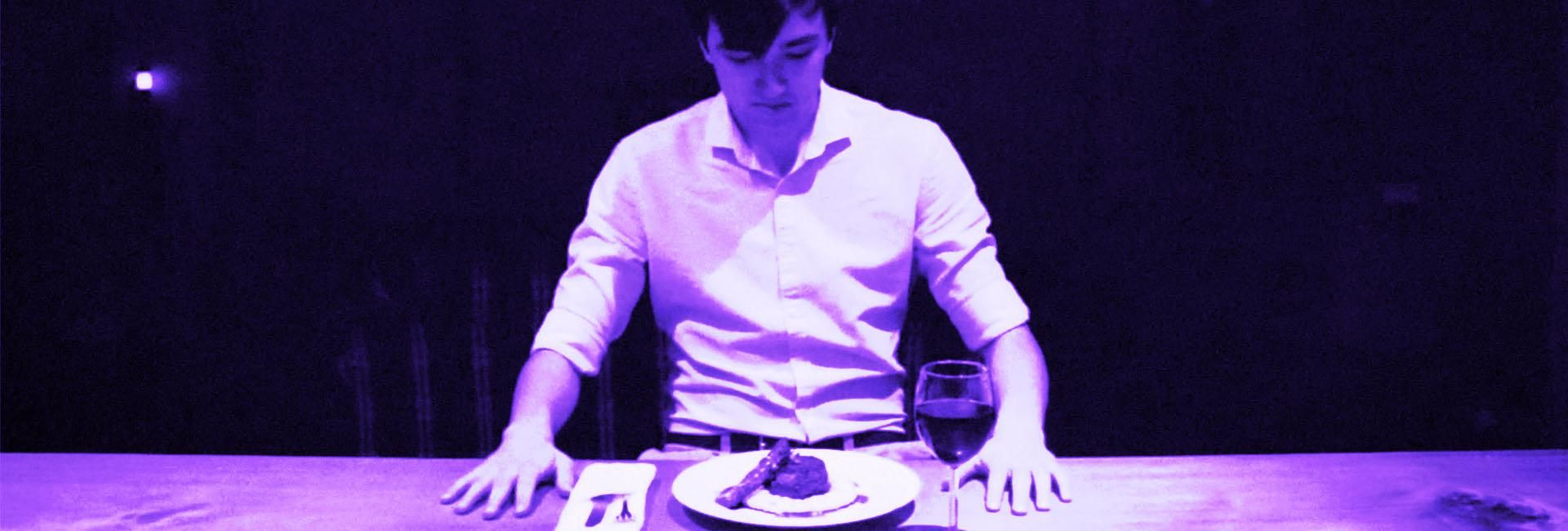Perfection has long been assumed to be a wholly positive goal but Crème de la Crème challenges that assumption.
- YouTubeyoutu.be
Review
Crème de la Crème
Available Online
★★★★★
The majority of Crème de la Crème's nearly five-minute runtime could be easily labelled as a visually cathartic examination of its seemingly obvious cooking agenda. At least this is the façade that's its central protagonist, a multi-award-winning chef, lends to viewers. That is, until director Cecilia Lam shatters the glass right before our eyes. Quite literally.
In an instant, the short film's agenda shifts, and the reality of the protagonist's struggle, something initially perceived in the viewer's mind to be a triumph, begins to reveal itself.
"What we're seeing, even though it looks very prim, proper, very elegant, what he thinks of himself [up until that point] is not what we see," Lam explains to Newsworthy.
Perfectionism can carry a mindset leaving absolutely no room for error, that in turn romanticises goals which become then unattainable. The lens of cooking, ironically, becomes the "perfect" gateway into this issue for the film.
"I think it's understandable to see all of these world class fancy chefs, they work so hard to achieve something, and it can be really frustrating. No matter how hard you work, it never seems to be good enough," Lam said.
It all looks good enough on the surface as quick interchanging cooking shots of Lam's film detail the journey of a meal, from its inception of simple ingredients all the way up to its presentation and judgement. Then it unravels so quickly that before we can comprehend the events, it has started all over again, marking the vicious repetitive cycle of self-abuse that is afforded to perfectionism.
The demoralising effects of perfectionism are not limited to the award-winning chefs, it plagues many individuals in both their careers and hobbies.
"If you're really dedicated to it, you can lose yourself to wanting to be so perfect at it and wanting to be really, really good" Lam said.
"I believe myself to be [a perfectionist], yeah. It comes through whenever I make videos, or maybe when I'm editing, as well as when I dance … I don't want to disappoint myself."
Culturally, the idea of perfectionism has always been examined in a desirable light, a complimentary result of hard work, perseverance and rigour. "the strive for excellence is probably a valuable asset that people want," Cecilia acknowledges, "it shows your dedication and your want to be good at something."
Yet as the protagonist shifts into a fit of darkness, he is swallowed by the shame and disappointment of his shortcomings. What is less visibly recognised is the harm of perfectionism on productive growth and one's mental state. The reckless tendencies of this way of thinking leaves sufferers to set up a paradox that always results in a perceived failure.
"There's a certain point where you should take it back and reflect on yourself, to not burden yourself so much with trying to be perfect, because nobody can really be perfect."
Perfectionism becomes more of a burden than an asset, and the price is a heavy one to pay.
— Review by GEORGE AL-AKIKI
A fourth year student studying a Bachelor of Media (Communication & Journalism) at UNSW in Sydney, George is obsessed with all things entertainment. His blog, Magic of the Screen, is dedicated to the analysis, review and discussion of films amongst other media. Catch him at the Ritz or even cooped up at home watching Netflix.
Jessica has completed a Bachelor of Media (Communication and Journalism) and International Studies double degree. She is passionate about politics and human rights, with a particular interest in understanding gender inequality.






Afraid of an egg: the tyranny of living with social media's body standards